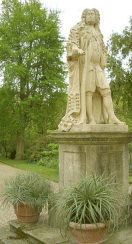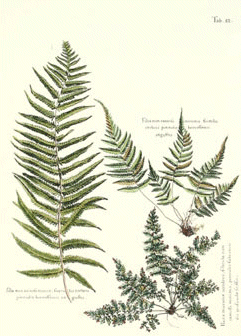



Sir Hans Sloane (1660–1753) was an Irish physician, naturalist, and pioneering collector whose journey to Jamaica in the late 17th century transformed both his life and the understanding of Caribbean natural history. His work in Jamaica not only advanced scientific knowledge but also laid the foundations for several major British institutions. This article explores why Sloane went to Jamaica, what he accomplished there, the benefits of his work for Jamaica, and the significance of his study and documentation for the world.
In 1687, Hans Sloane, already a rising figure in London's scientific and medical circles, was appointed personal physician to Christopher Monck, the 2nd Duke of Albemarle, who had just been made governor of the British colony of Jamaica. Eager to expand his medical knowledge and scientific collections, Sloane saw Jamaica as a land teeming with new botanical and zoological wonders, and a potential source of profitable drug plants unknown in Europe.
During his 15-month stay (December 1687–March 1689), Sloane immersed himself in the study of the island’s natural environment and its people. He collected an extraordinary number of samples and recorded remarkable observations:
His most important publications, such as Catalogus Plantarum Quae in Insula Jamaica Sponte Proveniunt (1696) and the two-volume Natural History of Jamaica (1707–1725), became essential reference texts for botanists and scholars across Europe.
While Sloane’s primary interests were scientific advancement and personal gain, his work yielded several lasting impacts on Jamaica:
Hans Sloane’s Jamaican expedition had a profound influence on global scholarship:
Sloane’s legacy is not without controversy. Much of the economic structure that supported his research was built on the exploitation of enslaved African people. Enslaved labor underpinned both the Jamaican plantation economy and the networks that allowed scientists like Sloane to thrive. Moreover, much of the knowledge he recorded came directly from enslaved Africans and Indigenous peoples—with little recognition at the time. Today, scholars critically re-evaluate his work in light of its colonial context.
Hans Sloane’s time in Jamaica revolutionized natural science, enriched global collections, and preserved the biological and cultural diversity of a complex society. His contributions continue to influence science, medicine, and museum practices to this day, even as we acknowledge the historical injustices that made his work possible.
Hans Sloane catalogued what he found—but the true roots of Jamaican medicine were already thriving, passed down through hands, prayers, and lived experience. This article from The Fiwi Roots Collection follows that lineage into the laboratories of today.
—The Fiwi Roots Collection is a curated archive of stories that reclaim Jamaica’s buried truths—rooted in tradition, shaped by struggle, and carried through generations—the threads that make us uniquely Jamaican.IMPORTANT
The information provided is for information only. The medical claims or advice are not endorsed. Never take any medicines without first consulting a qualified practitioner.